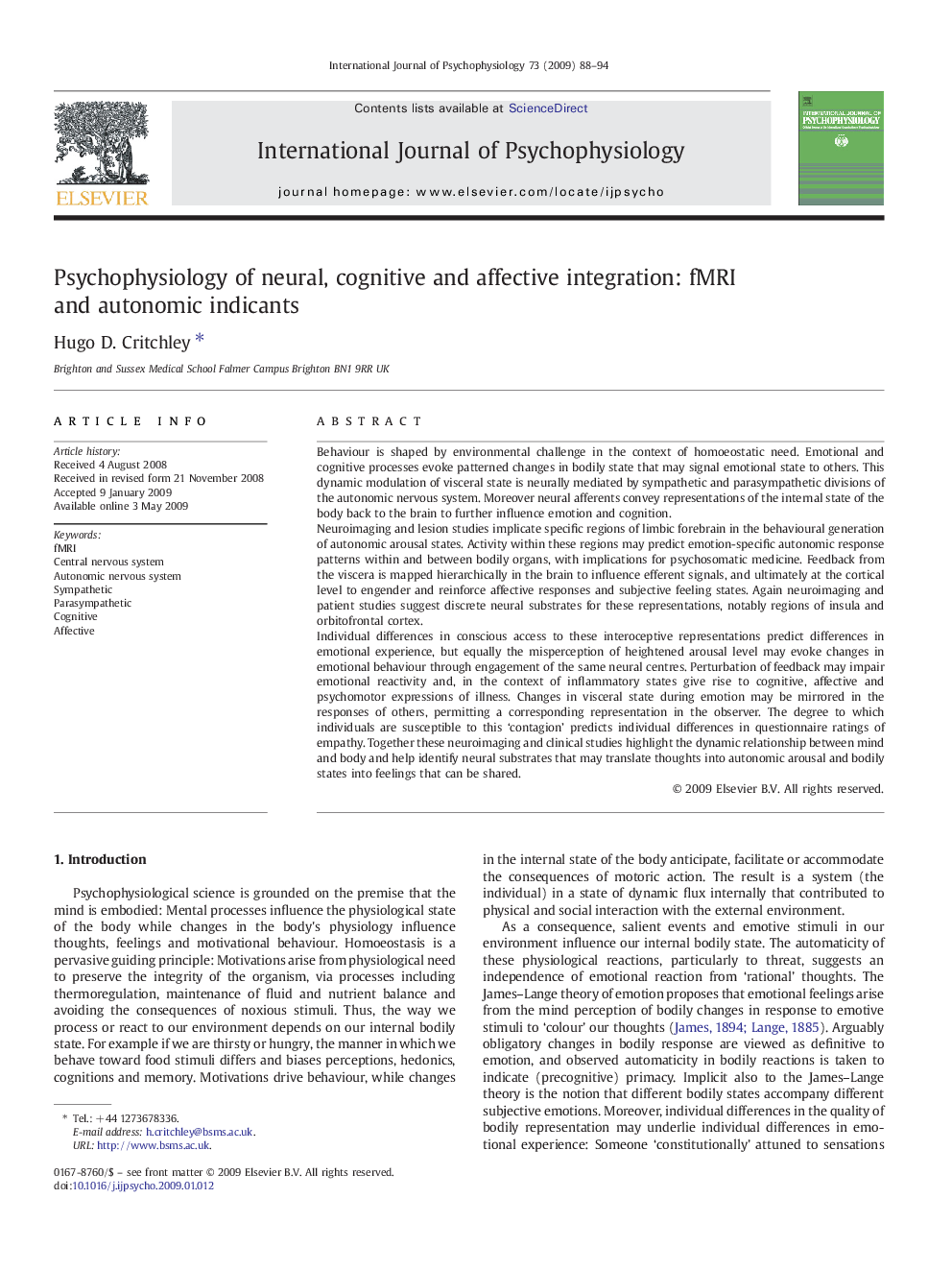| Article ID | Journal | Published Year | Pages | File Type |
|---|---|---|---|---|
| 7296540 | International Journal of Psychophysiology | 2009 | 7 Pages |
Abstract
Individual differences in conscious access to these interoceptive representations predict differences in emotional experience, but equally the misperception of heightened arousal level may evoke changes in emotional behaviour through engagement of the same neural centres. Perturbation of feedback may impair emotional reactivity and, in the context of inflammatory states give rise to cognitive, affective and psychomotor expressions of illness. Changes in visceral state during emotion may be mirrored in the responses of others, permitting a corresponding representation in the observer. The degree to which individuals are susceptible to this 'contagion' predicts individual differences in questionnaire ratings of empathy. Together these neuroimaging and clinical studies highlight the dynamic relationship between mind and body and help identify neural substrates that may translate thoughts into autonomic arousal and bodily states into feelings that can be shared.
Keywords
Related Topics
Life Sciences
Neuroscience
Behavioral Neuroscience
Authors
Hugo D. Critchley,
